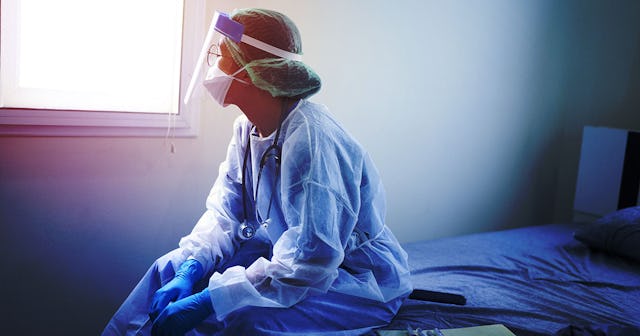What You Need To Know About Coronavirus Reinfections

There are very few things we know for sure about COVID-19. Seven months into the pandemic and the only statement I feel confident to make is that we still don’t know all that we don’t know. But we’re learning. Thankfully, we know so much more than we knew back in March—both good and bad. We know there are treatments that can help the most critically ill among us, and we know there are people who, for reasons as yet unknown, suffer from this virus for months at a time—the long haulers.
We’re learning about transmission and community spread. We’re learning about the relationship between COVID-19 and inflammation.
One of the most important questions still waiting to be answered is with respect to reinfection. Is reinfection possible? If so, what does that mean for the potential efficiency of a vaccine? What does that mean for an end date to this pandemic? And if reinfection is not possible, what does that mean for immunity?
Recently a public health laboratory in Nevada published a case study about a 25-year-old man who presented with symptoms and a second positive COVID-19 test six weeks after his initial positive test. The patient is the first confirmed case of coronavirus reinfection in the United States. Scientists confirmed that his second positive result was not a flare up of symptoms, as sometimes happens with COVID long haulers, but rather a reinfection by comparing the genetic sequence of both infections. They found he was infected by a “genetically distinct virus,” and concluded that “previous exposure to SARS-CoV-2 might not guarantee total immunity in all cases.” More troubling than the fact of his reinfection is that his second illness was more severe than his first.
At first glance, that sounds stressful with emphasis on the stress part. I can’t help but instantly go into panic mode and believe this pandemic will be never-ending, and that these unprecedented times are now normal times, and luxuries like quiet mornings while kids enjoy an overnight at their grandparents’ house are gone forever.
But then I take a second glance and a deep breath. Because we’re seven months into the pandemic and going into panic mode has never once helped me. A better choice than panic mode is to put this study into perspective.
skaman306/Getty
For one, the Nevada man’s case is only the second confirmed case of coronavirus reinfection where the patient was sicker the second time, and only three reported cases of confirmed reinfection (with more waiting for scientific review) exist. When you compare those numbers to the 39 million infected globally (as of this writing), even if the number of reinfection cases should be doubled or quadrupled—thanks to uncounted cases due to asymptomatic infections or our country’s early testing troubles—then it’s safe to assume that reinfection is very, very rare. Rarer still, is reinfection with a more severe bout of illness.
Also, it’s worth taking a step back from looking at infection through a COVID-19 lens and instead thinking about reinfection in the grand scheme of things. Through that lens, reinfection isn’t necessarily a word to be afraid of. Dr. Michael Mina, a pediatric immunologist at the Harvard T.H. Chan School of Public Health, in an interview with the New York Times, urged readers to remember that reinfections are ingrained in our immune system. The immune system is built to develop some immunity to initial exposure to an unfamiliar virus and then to strengthen that response upon subsequent exposures.
It’s important to note here, though rare and though a regular occurrence in terms of the immune system’s evolution, reinfection does have consequences. Most importantly, reinfection, even with a mild or asymptomatic response, can be contagious. The first confirmed reinfection case, a patient in Hong Kong tested positive during a routine airport screening, but showed no symptoms. However, his viral load was high enough to have made it possible for him to infect other people.
When it comes to reinfection, the underlying question boils down to one of immunity: Will a vaccine adequately prevent reinfection? The likely answer is yes. “[V]accines have a better chance at generating robust immunity than does natural infection with the virus,” according to experts who spoke to the New York Times.
Akiko Iwasaki, a professor of immunobiology at Yale University confirmed this idea in an interview with NPR when he said, “The good thing about a vaccine is that it can induce much better immunity, a much longer lasting immunity, than the natural exposure to the virus.”
All of that is to say: we have a lot of reasons to believe that reinfection is rare, a vaccine can and will produce a protective immune response, and that this pandemic nightmare will come to an end eventually. Until then, it’s important that all of us, even those who have antibodies to the virus, continue to social distance and wear a mask. Because like I said in my first paragraph: the only thing we know for sure is that we don’t know all that we don’t know.
Information about COVID-19 is rapidly changing, and Scary Mommy is committed to providing the most recent data in our coverage. With news being updated so frequently, some of the information in this story may have changed after publication. For this reason, we are encouraging readers to use online resources from local public health departments, the Centers for Disease Control, and the World Health Organization to remain as informed as possible.
This article was originally published on